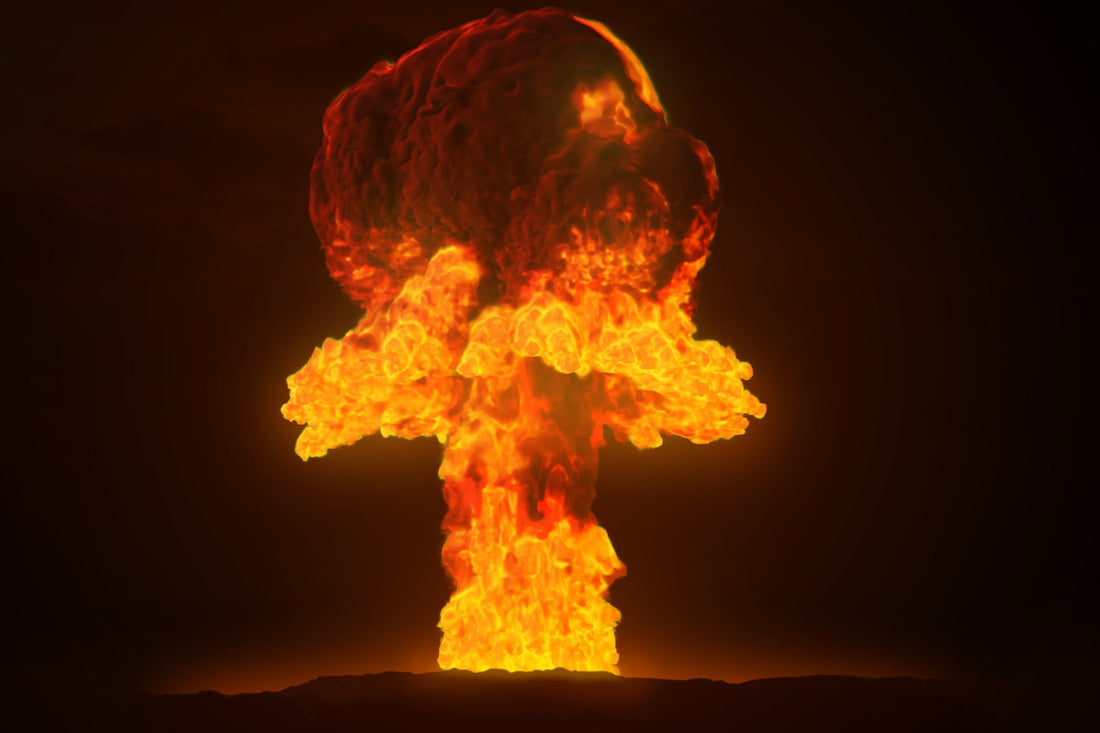
Iran, Nuclear Weapons, and Managing Consent
Share
Hi, my name is Andrew, and I studied political science at Concordia with a focus on transitional politics, which is the study of regime change, mostly focused on states going into or out of autocratic states.
I don’t say this to position myself as an expert, because I didn’t pursue graduate studies, I say it only to explain that I have literacy in this area. Not just in how things work, but in how information is being portrayed, and when it is not being portrayed honestly. I’m asking for a few moments of your attention to go over a few things that you need to know and understand while propaganda ramps up against Iran, specifically regarding the development of nuclear weapons.
Conveniently, I recently spoke to Dr. Julian Spencer-Churchill from Concordia University in Montreal for a show I’m building with Dave Kaufman called Clearing the Benches. I’m not trying to self-promote here, I promise, I am referencing this because I think it’s extremely important for all of us to know. Julian is a professor of Political Science, former Army Operating Officer of the 3rd Field Engineering Regiment, and an expert on the development, security measures, and politics surrounding nuclear weapons.
We talked to him because there were op-eds in Canada from various sources (The Hill Times, The Globe and Mail) calling for Canada to build nuclear weapons of our own in response to American aggression. I wanted to know if we could, and what the implications would be, because it sounded crazy.
Over the course of a 2.5-hour conversation, Julian explained that we could make nuclear weapons pretty easily, pretty quickly, and pretty cheaply, and that it would accomplish nothing.
Nuclear weapons are powerful, we know a lot about them, and the technology is not new. Canada doesn’t possess the infrastructure to mass produce fissile material, but making a handful of bombs is well within our reach.
The problem is, refining fissile material produces castoff material like the element krypton. The United States has ‘sniffers’ that can detect this extremely efficiently, and has for decades. You cannot do this in secret.
Even if you could, you now have to hide your warheads with launch capability. Any country can build a silo, but hostile countries can see silos, and they can be destroyed easily with conventional weapons if a conflict arises that tempts their use.
Where nuclear weapons have a strategic advantage is when they provide escalation dominance. A few bombs do not accomplish that against a country like the USA.
That brings us to Iran, and the fear mongering about the possibility of them developing nuclear weapons that has been constant for 3 decades now. Could Iran build nuclear weapons? Yes. Could they do it quickly? Yes. Do they have the technology to create a delivery system for a warhead? Yes. Does any of that matter? Not really.
Iran does not have the capability to establish escalation dominance against Israel. Not just because Israel already has nuclear capability and doesn’t abide by international nuclear treaties, but because any conflict with Israel at that level will bring the USA into the equation.
American imperialists will spread fear about a suitcase bomb or miniaturized version of another kind to execute a terrorist attack, but again, everyone would know where that device was built, so we’re back to the question of escalation dominance.
Creating a nuclear weapon would not increase the security of Iran, they have been very cooperative with inspectors for years, even after Trump killed the deal the Obama administration put together. If anything, it would encourage more hostile action against them.
The only way you can buy the idea that Iran is pursuing nuclear weapons is if you believe they don’t care about the consequences of using those weapons. That knowing that would face mutually assured destruction, they would still go forward with destruction on that scale.
Keep in mind that since August 9th, 1945 zero nuclear bombs have been detonated in war. Only one country in history has used nuclear weapons as an offensive force, and they did so when no other nation possessed the technology. Even when the Soviet Union had an error that made them believe the USA had fired nuclear weapons at them, Stanislav Petrov chose to not fire back. Very few of us want the world to end.
In order to believe that Iran is inevitably chasing the development of a nuclear weapon you must necessarily dehumanize the motivations of Iran and its people. You must cast them as suicidal, motivated by something you cannot understand. You must see them as others, different from us… Erratic, unstable.
No one is going to try to convince you that Iran’s government is benevolent, or isn’t oppressive, but are they erratic? Are they seeking conflict?
When Israel escalated their proxy conflict with Iran on April 1st, 2024 by bombing an Iranian consulate in Syria, Iran responded on April 13th and 14th by seizing an Israeli-affiliated ship, reportedly collaborated with Hezbollah to fire 40 rockets into Northern Israel, and worked with allies to launch around 300 drones and multiple ballistic missiles, most of which were intercepted by Israel and their allies.
Iran’s envoy to the United Nations stated that the attacks “can be deemed concluded” the following day, an isolated response to Israel’s bombing of their embassy. Israel was warned to de-escalated by the US, and on April 18th it was reported that the USA greenlit an Israeli offensive in Rafah in exchange for no further strikes on Iran. The following day on April 19th, Israel launched a series of strikes into Iran anyway targeting air defence and nuclear energy facilities.
Iran did not escalate in return. Does that strike you as a particularly irrational, suicidal actor on the world stage?
We have been here before. Similar rhetoric flew around when I was in high school before and during the invasion of Iraq. Whether intentional or not, your fear is being stoked, and your consent is being managed. Please take a minute, think things through, and take this to heart.
If you want more information about this, you can listen to the whole episode with Dr. Spencer-Churchill, and read his two follow up columns that were sparked by our conversation here and here.
